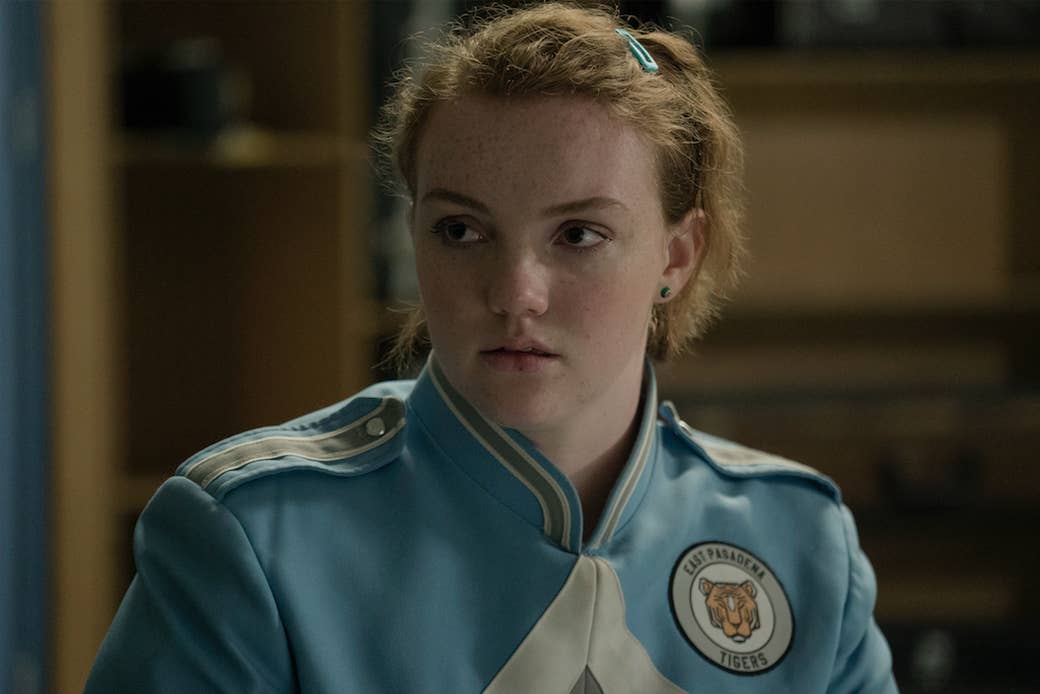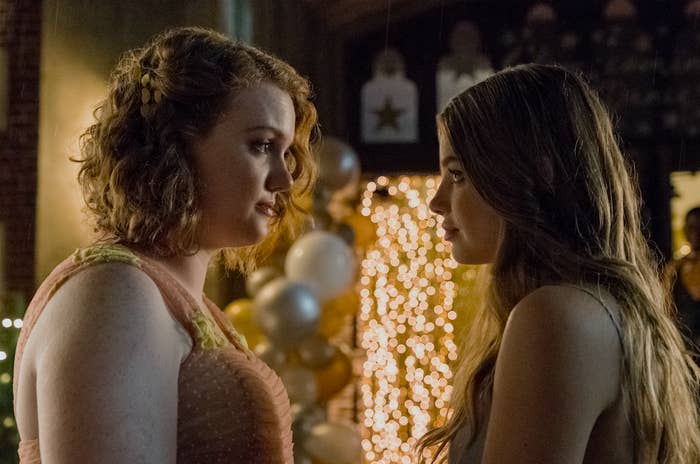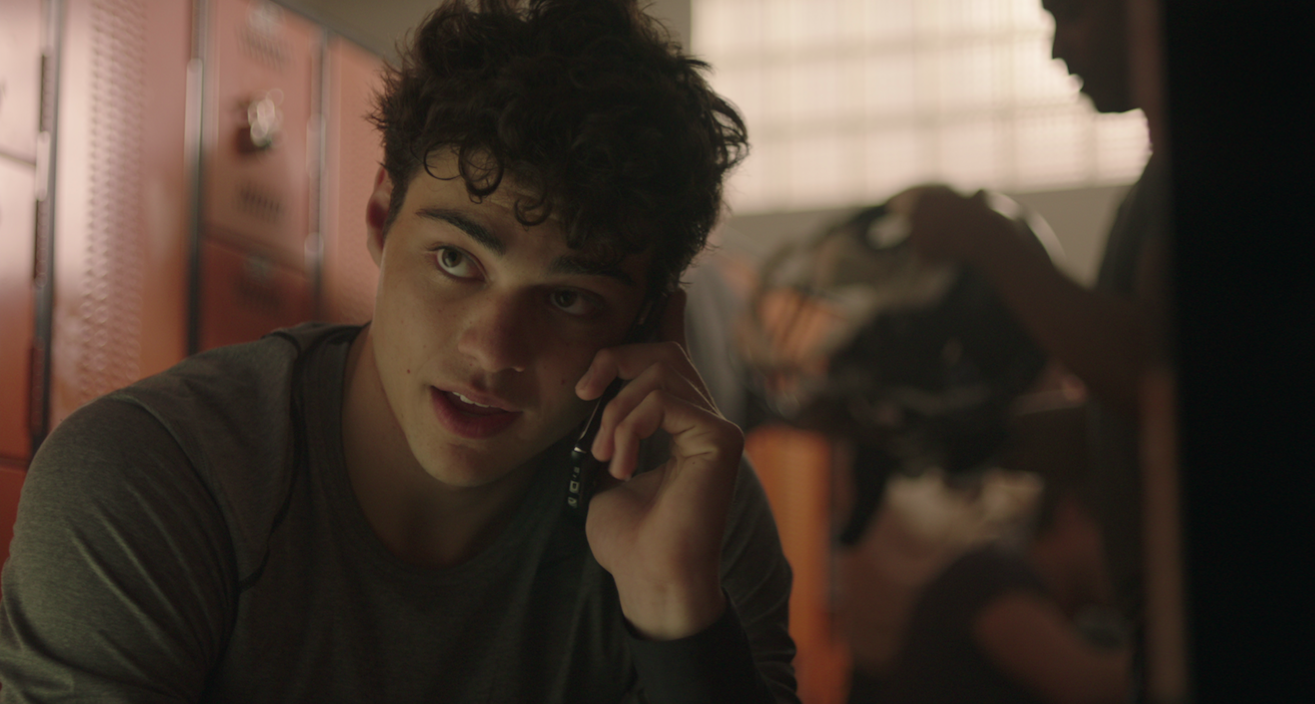
I’m fat. I don’t say this because I think only fat ladies can comment on the new Netflix romantic comedy Sierra Burgess Is a Loser, but rather to point out that I have a vested interest in this movie, a romantic comedy in which the nerdy (band geek alert) girl and the popular guy fall for each other over the phone with a little help from a Cyrano-tinged case of mistaken identity. I’ve been that girl, wearing an ill-fitting cardigan pining after a boy who was out of my league, whatever that bullshit means. I think I’m a pretty well-adjusted adult (no need to ask my family if that’s true), but there’s still a very shallowly buried part of my personality that is a 14-year-old girl hoping for her happy ending with a big old hunk. And this movie looked like it was going to deliver the thrills to the teen in all of our hearts!
From the trailer and plot, I was expecting a lovely little romance, featuring the King and Queen of the Netflix scene, Shannon Purser as Sierra and Noah Centineo as the hero, Jamey (Barb and Peter Kavinsky, naturally!). The trailer does make it clear that Jamey thinks the girl he’s falling for is skinny and beautiful, but mistaken-identity romances can be a lot of fun (see also: the equally great Shakespeare and Nora Ephron). As the film went on, I realized slowly that I was not in for a fun You’ve Got Mail, She’s the Man–style romp. I hope I don’t sound overdramatic when I say that this movie betrayed me.
Isn’t it kind of wild that in 2018, I, a woman with Hulu, Netflix, HBO Go, and PBS Passport (for scoping the cardigan dudes on The Great British Bake Off, duh) at her disposal, was excited at the prospect of a film with a fat female protagonist who gets the guy and doesn’t lose weight or get prettier at any point (eyebrow grooming notwithstanding)? It’s revelatory, tbh. What are the other movies with a happy romantic ending for a fat girl, Hairspray and, like, Shrek? (If Ariel hadn’t had all those animal-friend helpers, fat icon Ursula in Disney’s The Little Mermaid would definitely be on this list. She was coming for Eric and I can only hope she planned on turning him into one of those little slugs for being dumb enough to not recognize all the magic that was happening around him.)
But I digress. Fat women simply don’t have the opportunity to see themselves as romantic heroes onscreen very often, so when I see a curvy gal in a trailer, I’m going to at least give it a chance. Who knows when we will see another heroine like Sierra again? If Hollywood has taught us anything about representation, it’s that you don’t always get a second shot, or it takes like 25 years or some horseshit.

There is some good stuff in the movie. Both leads are adorable. Kristine Froseth is very good as Veronica, the third player in this plot of mistaken identity. Chrissy Metz has a small but very spiky role that could have used room to grow.
But, ultimately, I didn’t get what I wanted, which was a movie with a fat heroine who gets her own happy ending. What I was served instead was a warped film that dislikes its own star. The title of the film is apt. By the end credits, it’s apparent that the film does not really think she “belongs” with a cute guy. Sierra and Jamey may get their happy ending, but it is not fully earned because the plot forces Sierra to become unlikable and helpless.
I wish I could just call Netflix and say, “you’ll get ‘em next time, champ” and rewatch To All the Boys I’ve Loved Before. But I can’t in good conscience leave it at that. There are still so few overweight women onscreen, in starring or supporting roles. And Netflix in particular has been serving up some very strange and hurtful depictions of fat women of late. Insatiable, the highly publicized mess of a TV show the streaming service released last month, also promised to deliver an empowering storyline for its fat main character. The final product is a travesty that is clearly trying to be subversive but ends up being offensive. It doesn’t seem quite fair to lay the burdens of Insatiable at Sierra’s feet, but it does seem like a pattern is emerging. Netflix, for whatever reason, cannot deliver a depiction of fatness with any nuance or empathy.
What’s especially disappointing in Sierra’s case is the fact that it starts off very strongly (unlike Insatiable, which is incomprehensible from minute one). When Sierra first appears onscreen, she is a bubble of ethereal confidence. There’s a little moment in the beginning where Sierra looks at herself in the bathroom mirror and says to her reflection, “You are a magnificent beast.” To see such confidence from a teenage girl, I melted! She lets Veronica’s (really, really mean and kind of anti-transgender) comments ping off her like little hate balls. She knows she’s smart. It’s great! I wish I had been like that in high school instead of a frizzy hairball of anxiety!
It’s when the plot really gets going that things get hairier. Jamey very shyly hits on Veronica, who gives him Sierra’s number...because that’s funny? Whatever, it needed to happen for the plot to move forward. So Sierra and Jamey text and talk to each other on the phone, and it’s all very sweet. They have excellent phone chemistry.
Of course, this can’t go on forever, so Sierra enlists Veronica to help her by going on FaceTime calls and movie dates with Jamey. In exchange, Sierra helps Veronica “seem smarter” to her dumb college boyfriend. During the climax of the film, Sierra sees Veronica kissing Jamey, and spitefully broadcasts a screenshot of Veronica’s private and embarrassing DMs with her boyfriend. Things go south, Jamey ends up with a concussion, everyone hates Sierra, and for very good reason! She doxxes Veronica, with whom she has become close, for almost no reason at all. This fairly heinous act is totally out of character.

At this point, Jamey completely drops out of the film, only to return after Veronica convinces him to take Sierra to homecoming. He shows up on her doorstep for the final scene, which should be sweet and climactic, but the film has completely removed Sierra’s agency, so the meaning isn’t there. I couldn’t help but read Veronica’s role in this reconciliation as one attractive person convincing another attractive person to give the weirdo a chance. It would have been much more empowering to see Sierra fix her mistakes, to advocate for herself, to say, “Pick me. Choose me.” Not to completely unravel the very concept of this movie, but why do we even need a pretty girl to be a conduit for Sierra to get the hunky guy?
This lack of agency would be troubling for any heroine, but it stings especially hard to see a fat girl lose her voice. Most teen comedies, like this one, depict bullying as a verbal act. But it’s been my experience that the worst kind of bullying is simply being ignored. There’s a scene in the excruciatingly beautiful movie Eighth Grade when the main character, Kayla, goes to a pool party, wearing an ill-fitting, one-piece bathing suit. The popular girls (in bikinis) only need to look at one another for Kayla to know that she’s not one of them. They ignore her more loudly than they could have screamed at her. When you’re not considered attractive, you aren’t seen, you aren’t heard.
This lack of agency would be troubling for any heroine, but it stings especially hard to see a fat girl lose her voice.
The problem with stories about fat characters, especially girls, is that you can toot the “she’s a confident, beautiful character” horn all day long (as this film does in the first few scenes), but at the end of the day, most people, even well-meaning, nice, “woke” people, think that being fat is an innate character flaw. This is reflected in the stories we are told about fat people. That is how we end up with a movie that betrays its main character by making her into the villain. The movie implies that deep down Sierra may not deserve love.
Fat bias is sticky and difficult to remove. A movie has to be radical to remove all traces from its DNA. But a teenage romantic comedy is a fantasy. Are you telling me, the child of a paying Netflix customer who has been using the family account on her laptop for the past eight years even though I have a 401(k) now, that no one can tell me a fairy tale with a princess who shops at Eloquii? Do I need to write this story myself??!
I’m not a teenager anymore. When I was Sierra’s age, I thought if I gained any more weight I would die and also no one would ever want to kiss me. Well, I did gain weight. And reader, I did not die. I wear fun clothes and follow great fat-positive Instagram accounts. No fewer than three boys have told me I am beautiful, whatever that’s worth. But I still want. I want a story, a dreamy story, where a girl like me is the heroine. I want to see a fat girl fall in love without any sabotage, without any tricks.
As I have gotten older, I have gotten better at holding some unshakable truths within myself: that I am beautiful, that I am worthy of love. This is no thanks to the culture we all live in, by the way. I know, I know that a fat woman like me can be the princess of her own story, because I recognize my own humanity. Is it so much to ask that Hollywood do the same?
